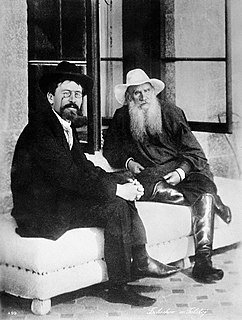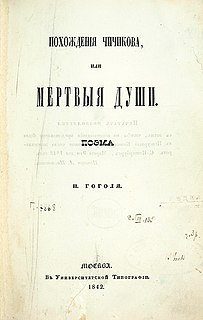
The Supervisor of the Sea, by Emil Draitser, is a collection of short stories.

The Supervisor of the Sea, by Emil Draitser, is a collection of short stories.
The longer and more serious stories of an acclaimed author that move from Russia to America to the fantastic beyond. Includes the celebrated "Wedding in Brighton Beach" and "Faithful Masha."
Russian literature has never known such a book. In Draitser's stories, America and Russia are whimsically yet inseparably intertwined. Draitser's humor is so deeply philosophical that the reader doesn't notice at times where the comedy ends and the tragedy begins.
Draitser transforms an event into a story, and his method, which he has brought to mastery, consists in taking a situation to the point of absurdity and then making this absurdity a reality... Draitser's language is precise and expansive, his storyline is meticulously designed, his colors are rich.

The Theatre of the Absurd is a post–World War II designation for particular plays of absurdist fiction written by a number of primarily European playwrights in the late 1950s. It is also a term for the style of theatre the plays represent. The plays focus largely on ideas of existentialism and express what happens when human existence lacks meaning or purpose and communication breaks down. The structure of the plays is typically a round shape, with the finishing point the same as the starting point. Logical construction and argument give way to irrational and illogical speech and to the ultimate conclusion—silence.

Absurdist fiction is a genre of novels, plays, poems, films, or other media that focuses on the experiences of characters in situations where they cannot find any inherent purpose in life, most often represented by ultimately meaningless actions and events that call into question the certainty of existential concepts such as truth or value.

Russian literature refers to the literature of Russia and its émigrés and to Russian-language literature. The roots of Russian literature can be traced to the Middle Ages, when epics and chronicles in Old East Slavic were composed. By the Age of Enlightenment, literature had grown in importance, and from the early 1830s, Russian literature underwent an astounding golden age in poetry, prose and drama. Romanticism permitted a flowering of poetic talent: Vasily Zhukovsky and later his protégé Alexander Pushkin came to the fore. Prose was flourishing as well. Mikhail Lermontov was one of the most important poets and novelists. The first great Russian novelist was Nikolai Gogol. Then came Ivan Turgenev, who mastered both short stories and novels. Fyodor Dostoevsky and Leo Tolstoy soon became internationally renowned. Other important figures of Russian realism were Ivan Goncharov, Mikhail Saltykov-Shchedrin and Nikolai Leskov. In the second half of the century Anton Chekhov excelled in short stories and became a leading dramatist. The beginning of the 20th century ranks as the Silver Age of Russian poetry. The poets most often associated with the "Silver Age" are Konstantin Balmont, Valery Bryusov, Alexander Blok, Anna Akhmatova, Nikolay Gumilyov, Sergei Yesenin, Vladimir Mayakovsky, and Marina Tsvetaeva. This era produced some first-rate novelists and short-story writers, such as Aleksandr Kuprin, Nobel Prize winner Ivan Bunin, Leonid Andreyev, Fyodor Sologub, Yevgeny Zamyatin, Alexander Belyaev, Andrei Bely and Maxim Gorky.

Nikolai Vasilyevich Gogol was a Russian novelist, short story writer and playwright of Ukrainian origin.

Baron Munchausen is a fictional German nobleman created by the German writer Rudolf Erich Raspe in his 1785 book Baron Munchausen's Narrative of his Marvellous Travels and Campaigns in Russia. The character is loosely based on a real baron, Hieronymus Karl Friedrich, Freiherr von Münchhausen.

Absurdism is the philosophical theory that life in general is absurd. This implies that the world lacks meaning or a higher purpose and is not fully intelligible by reason. The term "absurd" also has a more specific sense in the context of absurdism: it refers to a conflict or a discrepancy between two things but there are several disagreements about their exact nature. These disagreements have various consequences for whether absurdism is true and for the arguments cited in favor and against it. Popular accounts characterize the conflict as a collision between rational man and an irrational universe, between intention and outcome, or between subjective assessment and objective worth. An important aspect of absurdism is its claim that the world as a whole is absurd. It differs in this regard from the uncontroversial and less global thesis that some particular situations, persons, or phases in life are absurd.

Dead Souls is a novel by Nikolai Gogol, first published in 1842, and widely regarded as an exemplar of 19th-century Russian literature. The novel chronicles the travels and adventures of Pavel Ivanovich Chichikov and the people whom he encounters. These people typify the Russian middle aristocracy of the time. Gogol himself saw his work as an "epic poem in prose", and within the book characterised it as a "novel in verse". Gogol intended the novel to be the first part of a three-volume work, but burned the manuscript of the second part shortly before his death. Although the novel ends in mid-sentence, it is regarded by some as complete in the extant form.
Postmodern literature is a form of literature that is characterized by the use of metafiction, unreliable narration, self-reflexivity, intertextuality, and which often thematizes both historical and political issues. This style of experimental literature emerged strongly in the United States in the 1960s through the writings of authors such as Kurt Vonnegut, Thomas Pynchon, William Gaddis, Philip K. Dick, Kathy Acker, and John Barth. Postmodernists often challenge authorities, which has been seen as a symptom of the fact that this style of literature first emerged in the context of political tendencies in the 1960s. This inspiration is, among other things, seen through how postmodern literature is highly self-reflexive about the political issues it speaks to.

Vladimir Nikolayevich Voinovich, was a Russian writer and former Soviet dissident, and the "first genuine comic writer" produced by the Soviet system. Among his most well-known works are the satirical epic The Life and Extraordinary Adventures of Private Ivan Chonkin and the dystopian Moscow 2042. He was forced into exile and stripped of his citizenship by Soviet authorities in 1980 but later rehabilitated and moved back to Moscow in 1990. After the fall of the Soviet Union, he continued to be an outspoken critic of Russian politics under the rule of Vladimir Putin.

Daniil Ivanovich Kharms was an early Soviet-era Russian avant-gardist and absurdist poet, writer and dramatist.
"The Nose" is a satirical short story by Nikolai Gogol written during his time living in St. Petersburg. During this time, Gogol's works were primarily focused on the grotesque and absurd, with a romantic twist. Written between 1835 and 1836, "The Nose" tells the story of a St. Petersburg official whose nose leaves his face and develops a life of its own. "The Nose" was originally published in The Contemporary, a literary journal owned by Alexander Pushkin. The use of a nose as the main source of conflict in the story could have been due to Gogol's own experience with an oddly shaped nose, which was often the subject of self-deprecating jokes in letters. The use of iconic landmarks in the story, as well as the sheer absurdity of the story, has made "The Nose" an important part of St. Petersburg's literary tradition.
Literary modernism, or modernist literature, originated in the late 19th and early 20th centuries, mainly in Europe and North America, and is characterized by a self-conscious break with traditional ways of writing, in both poetry and prose fiction writing. Modernism experimented with literary form and expression, as exemplified by Ezra Pound's maxim to "Make it new." This literary movement was driven by a conscious desire to overturn traditional modes of representation and express the new sensibilities of their time. The horrors of the First World War saw the prevailing assumptions about society reassessed, and much modernist writing engages with the technological advances and societal changes of modernity moving into the 20th century.
Hama Tuma is an Ethiopian poet and writer in the Amharic and English languages.

Eqrem Basha is among the most respected contemporary writers of Kosovo in recent years. His life and literary production are intimately linked to Kosovo and its capital Pristina, where he has lived and worked since the 1970s.

Aleksey Mikhailovich Remizov was a Russian modernist writer whose creative imagination veered to the fantastic and bizarre. Apart from literary works, Remizov was an expert calligrapher who sought to revive this medieval art in Russia.

Veijo Väinö Valvo Meri was a Finnish writer. Much of his work focuses on war and its absurdity. The work is anti-war and has dark humor.
Emil Draitser is an author and professor of Russian at Hunter College in New York City. Besides twelve books of artistic and scholarly prose, his essays and short stories have been published in the Los Angeles Times, Partisan Review, North American Review, San Francisco Chronicle, Prism International, and many other American and Canadian periodicals. His fiction has also appeared in Russian, Polish, and Israeli journals. A three-time recipient of the New Jersey State Council on the Arts fellowships in writing, he has also received numerous grants for writing both fiction and non-fiction from the City University of New York. Draitser has given numerous public lectures and book talks at universities and cultural centers in the United States, Canada, UK, Israel, Australia, New Zealand, and Russia.

Dmitri Aleksandrovich Prigov was a Russian writer and artist. Prigov was a dissident during the era of the Soviet Union and was briefly sent to a psychiatric hospital in 1986.
The Switchman is an existentialist short story by Mexican writer Juan José Arreola. The short story was originally published as a confabulario, a word created in Spanish by Arreola, in 1952, in the collection Confabulario and Other Inventions. It was republished ten years later along with other published works by Arreola at that time in the collection El Confabulario total. The story revolves around a "stranger" who wishes to travel to the town of T. by train, but is quickly met by a "switchman" who tells him more and more fantastical stories about the train system while they are waiting.
"On Official Duty" is an 1899 short story by Anton Chekhov.